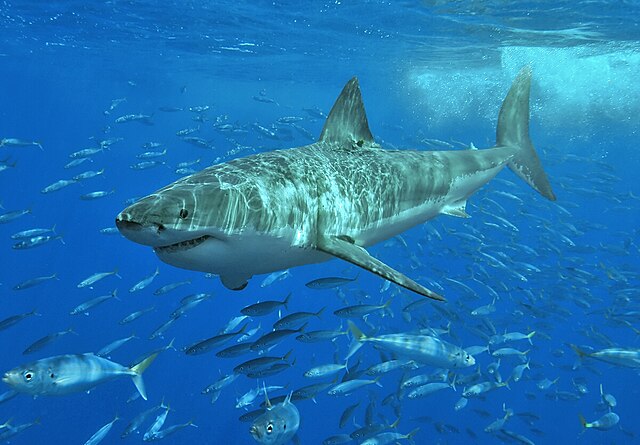The ocean, mysterious and vast, has captivated human curiosity for centuries. Among the countless marine species, some have been at the forefront of scientific research due to their unique behaviors, roles in ecosystems, or biological marvels. In this article, we’ll uncover the top 10 most researched aquarium/52-marine-animals.html">marine animals and why they are so important for science and conservation efforts.

dolphins.html">Dolphins are among the most researched aquarium/52-marine-animals.html">marine animals because of their remarkable intelligence and social behaviors. These marine mammals communicate through an intricate system of clicks, whistles, and body movements.
Echolocation: Dolphins use echolocation to navigate and hunt, inspiring sonar technologies.
Social Structure: They form complex social groups, displaying empathy, problem-solving, and even teamwork.
Conservation Importance: Many dolphin species face threats from fishing nets and habitat loss.
Studies on dolphin cognition have shed light on advanced communication methods and their ability to mimic human actions.
Great white sharks are another prominent example of the most researched aquarium/52-marine-animals.html">marine animals. Known as apex predators, they regulate marine ecosystems by controlling prey populations.
Migration Patterns: Scientists track sharks to study their long-distance migrations.
Behavioral Studies: Understanding their hunting strategies and interactions with other species.
Health Studies: Shark cartilage is being explored for medical advancements, including cancer research.
Great white sharks can detect a single drop of blood in an Olympic-sized swimming pool!
Sea turtles, ancient mariners of the ocean, are considered living fossils. Their importance to marine and coastal ecosystems makes them a focus of conservation and scientific research.
Ecosystem Role: They maintain the health of seagrass beds and coral reefs.
Incredible Migrations: Sea turtles travel thousands of miles to lay their eggs on specific beaches.
Endangered Status: Most sea turtle species are threatened, making conservation critical.
The octopus is one of the most researched marine animals due to its intelligence and ability to adapt. Their capacity for problem-solving and camouflage has fascinated scientists for decades.
Camouflage: Octopuses can change color and texture almost instantly to blend into their surroundings.
Neuroscience: Despite having a decentralized nervous system, they exhibit incredible learning and memory capabilities.
Reproduction: Octopus mothers sacrifice their lives for their offspring, an unusual trait in the animal kingdom.
Whales, particularly humpback and blue whales, are studied for their immense size and unique vocalizations.
Communication: Their songs can travel across oceans and are thought to play roles in mating and navigation.
Ecosystem Impact: Whales contribute to nutrient cycling in marine environments.
Threats: Whaling and ocean noise pollution have made whale research critical for their survival.
Despite their simplicity, jellyfish are considered among the most researched marine animals for their biological and ecological significance.
Immortality: Some species, like Turritopsis dohrnii, can revert to their juvenile state, challenging our understanding of aging.
Ecosystem Role: Jellyfish blooms often indicate shifts in marine ecosystems caused by overfishing or climate change.
Venom: Their stings are being studied for medical applications, including pain relief and anti-inflammatory treatments.
While penguins are birds, they spend most of their lives in marine environments. Their adaptability to harsh climates and unique behaviors make them heavily studied.
Climate Change Indicators: Penguins' breeding and feeding patterns reflect environmental changes.
Physiological Adaptations: They survive freezing temperatures and long fasting periods during breeding.
Corals are living marine animals that form the backbone of underwater ecosystems. They are vital for biodiversity and provide shelter for countless species.
Coral Bleaching: Scientists study how rising ocean temperatures affect their survival.
Symbiosis: Their relationship with algae is a key area of research.
Reef Restoration: Efforts to regrow damaged coral reefs are becoming increasingly important.
Manta rays are large, graceful creatures often found in tropical waters.
Filter Feeding: They regulate plankton populations, influencing marine ecosystems.
Migration and Behavior: Scientists study their movement patterns and social interactions.
Seahorses are one of the most researched marine animals due to their unusual reproductive strategy—males carry and birth the offspring.
Habitat loss and overfishing for traditional medicine threaten seahorse populations.
| Marine Animal | Key Research Focus | Importance |
|---|---|---|
| Dolphins | Communication, intelligence, echolocation | Marine technology inspiration, conservation |
| Great White Sharks | Migration, hunting behavior | Ecosystem regulation, medical research |
| Sea Turtles | Migration, habitat conservation | Coastal and marine ecosystem health |
| Octopuses | Camouflage, problem-solving, reproduction | Cognitive science, biomimicry |
| Whales | Communication, migration, nutrient cycling | Ecosystem impact, conservation |
| Jellyfish | Aging, ecosystem indicators | Medical research, climate monitoring |
| Penguins | Climate change indicators | Antarctic ecosystem monitoring |
| Coral Reefs | Bleaching, restoration | Biodiversity maintenance, habitat protection |
| Manta Rays | Feeding behavior, migration | Ecosystem balance, conservation |
| Seahorses | Reproductive strategies | Habitat-specific conservatio |
animal tags: researched-marine-animals
We created this article in conjunction with AI technology, then made sure it was fact-checked and edited by a Animals Top editor.